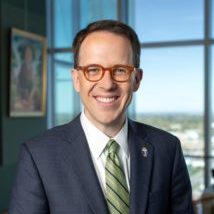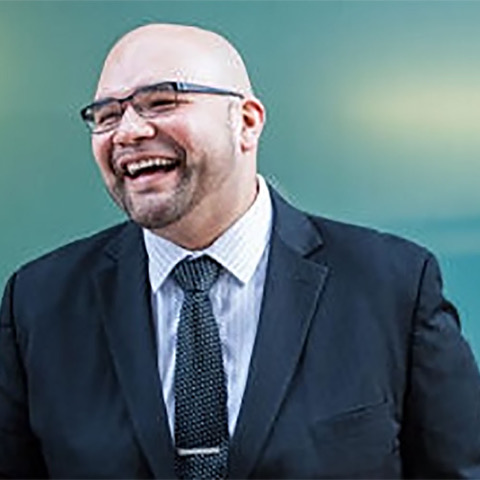Virtual Seminars are engaging and interactive learning opportunities for small groups of mayors and their senior staff. Each one-hour seminar features a deep-dive presentation on a single timely topic from a design expert, followed by a moderated group discussion among the attendees.
Achieving Design Excellence and Equitable Outcomes Through the RFP Process
In this seminar, recorded June 28, 2023, leaders in Tulsa and Chicago shared how they are creatively reworking the RFP process to center community vision, ensure equitable outcomes, and achieve design excellence. Mayor G.T. Bynum (Tulsa, OK) and Gerardo Garcia (Deputy Commissioner, Department of Planning and Development, City of Chicago) discussed strategies for building community wealth and capacity through development projects, embedding design excellence into RFPs, and creating community consensus before those RFPs are ever drafted.
Watch the presentation (40:28):
Key Takeaways
Lay the Groundwork
In recent history, city leaders in Tulsa have endeavored to make amends for events like the Tulsa Race Massacre of 1921 by investing resources in the community and cultivating an intentionally community-led vision for future development. In Greenwood, where the 1921 massacre took place, the city created a leadership committee comprised of the community’s leaders and residents to represent the will of the community throughout the pre-development process for a large swath of vacant land. Over a 12-month period, the leadership committee worked alongside consultants to engage the community and achieve a robust vision and framework. The resulting community space at Greenwood Plaza will honor the culture and history of the Greenwood neighborhood and all Black Tulsans.
Invest in the Pipeline
The main streets of South and West Chicago have been historically under-resourced due to redlining, urban renewal, and growing wealth disparities over time. The city’s INVEST South/West initiative addresses those issues, identifying several areas in Chicago’s South and West Sides and examining both their assets and deficits.
An Emerging Minority Developer Initiative helps represent and reflect the communities where proposed development will occur, growing the capacity of up-and-coming developers to handle the scope and scale of projects put forward by INVEST South/West. The RFPs issued throughout the process have garnered the attention of several premiere firms from across the country, many of which have chosen to team with the emerging developers. The city is also considering transitioning to Requests for Qualifications (RFQs) rather than RFPs, selecting teams based on their qualifications rather than their ability to afford putting together an expensive proposal package.
Set Expectations Higher
Embedding principles of design excellence into the RFPs/RFQs themselves clearly sets the expectations for a city’s desires without being prescriptive about how they are achieved. Prioritizing an inclusive design processes, through tools such as neighborhood design guidelines, helps foster equitable development for all parties. The resulting projects already underway for INVEST South/West clearly communicated the expectations of design excellence in their RFPs, which attracted broader private investment and achieved greater equity, with affordable housing giving market rate housing a “run for their money.”
Take the Lead
Chicago’s original intent was to focus on existing city-owned sites when issuing the RFPs for Invest South/West projects. It quickly became evident when engaging communities, however, that there were often additional community assets of value to residents, so the city went through the process of acquiring several. It added complexity and time to the process, but was deemed worthwhile for the sake of carrying out a vision set forth by the community itself. Gaining site control additionally mitigated risk for developers by squaring away issues of land ownership and acquisition at the front end of the process rather than leaving it up to developers to resolve later in the process.
Speakers

G.T. Bynum
Mayor of Tulsa
Sworn in as the 40th Mayor of Tulsa in 2016, Mayor G.T. Bynum is using data and innovation to bring people together and make Tulsa globally competitive. Under his leadership, the City has implemented multiple strategies and programs focused on fiscal responsibility, public safety, infrastructure and equality of opportunity for all Tulsans.
During Mayor Bynum’s tenure, first responders have received historic pay raises to contend with departments nationally, over a billion dollars in new investments have been announced citywide and nearly a thousand individuals have become U.S. citizens during City-hosted naturalization ceremonies. Simultaneously, Mayor Bynum is implementing the largest streets improvement program in Tulsa history (Improve Our Tulsa) and the largest economic development capital improvements program in Tulsa history (Vision Tulsa).

Gerardo Garcia
Deputy Commissioner, Department of Planning and Development
City of Chicago
Gerardo Garcia is a Deputy Commissioner at the Chicago Department of Planning and Development. An architect and urban designer, he has been immersed into achieving the city’s urban and economic development goals by leading teams in the delivery of projects ranging from visioning and design guidelines to infrastructure improvements. Gerardo is an advocate of civic engagement and design excellence in the development of city plans and policies. He is also an adjunct professor at the College of Urban Planning at the University of Illinois at Chicago. Gerardo has previously been a guest critic and guest lecturer at the School of Visual Arts in New York, NY. His work has been presented at the NYC Mayor’s Office for Long Term Planning and Sustainability, Columbia University, and the Roddom Institute in Ukraine.

